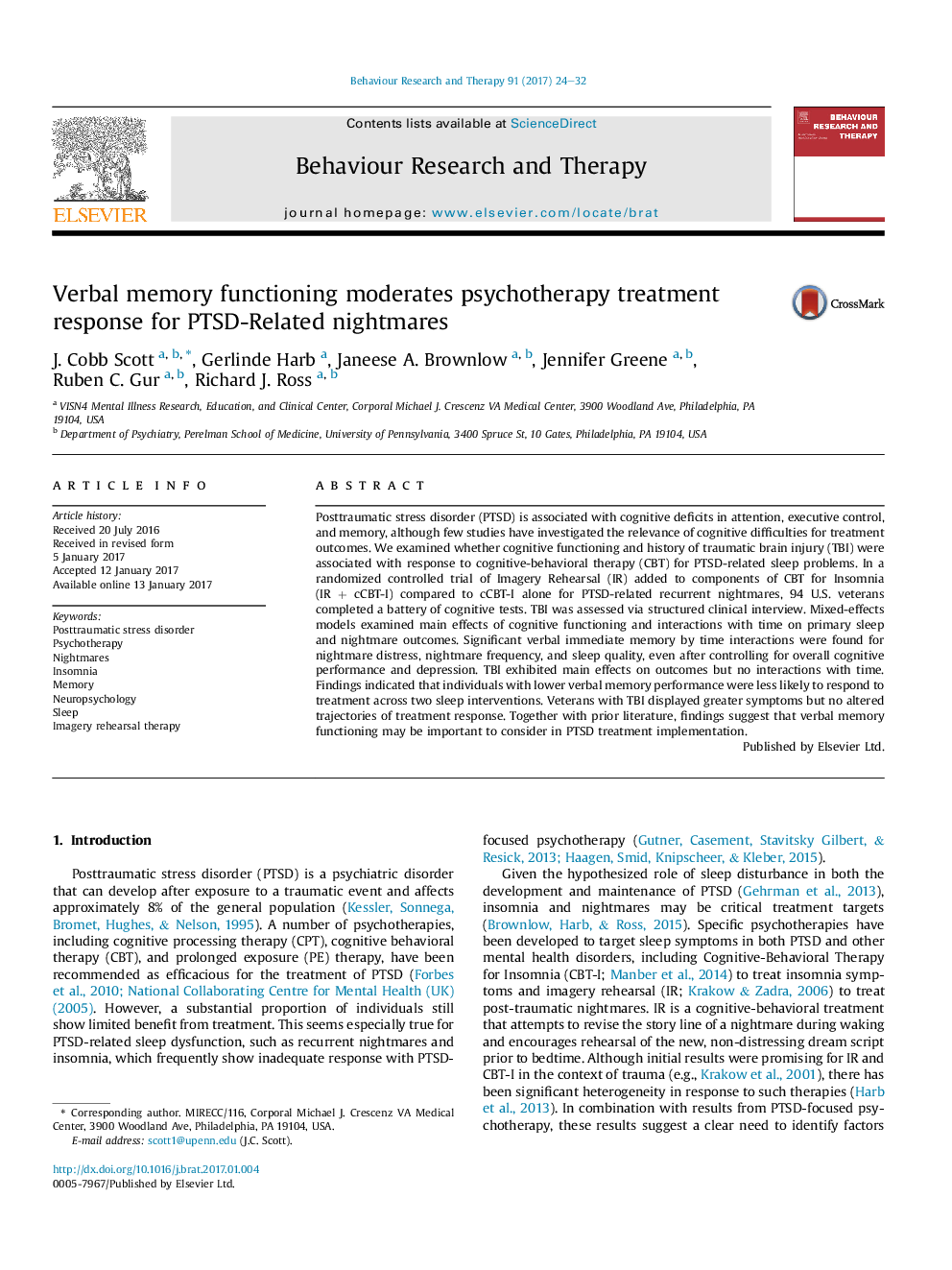| Article ID | Journal | Published Year | Pages | File Type |
|---|---|---|---|---|
| 5038211 | Behaviour Research and Therapy | 2017 | 9 Pages |
•Examined effects of cognitive functioning on sleep and nightmare therapy response.•94 U.S. veterans with PTSD completed neurocognitive tests at clinical trial entry.•Those with lower verbal memory functioning showed less benefit across treatments.•Important to examine how cognitive functioning might affect psychotherapy outcomes.
Posttraumatic stress disorder (PTSD) is associated with cognitive deficits in attention, executive control, and memory, although few studies have investigated the relevance of cognitive difficulties for treatment outcomes. We examined whether cognitive functioning and history of traumatic brain injury (TBI) were associated with response to cognitive-behavioral therapy (CBT) for PTSD-related sleep problems. In a randomized controlled trial of Imagery Rehearsal (IR) added to components of CBT for Insomnia (IR + cCBT-I) compared to cCBT-I alone for PTSD-related recurrent nightmares, 94 U.S. veterans completed a battery of cognitive tests. TBI was assessed via structured clinical interview. Mixed-effects models examined main effects of cognitive functioning and interactions with time on primary sleep and nightmare outcomes. Significant verbal immediate memory by time interactions were found for nightmare distress, nightmare frequency, and sleep quality, even after controlling for overall cognitive performance and depression. TBI exhibited main effects on outcomes but no interactions with time. Findings indicated that individuals with lower verbal memory performance were less likely to respond to treatment across two sleep interventions. Veterans with TBI displayed greater symptoms but no altered trajectories of treatment response. Together with prior literature, findings suggest that verbal memory functioning may be important to consider in PTSD treatment implementation.
